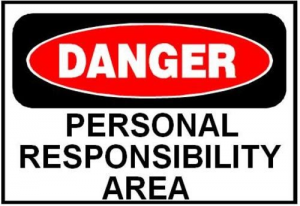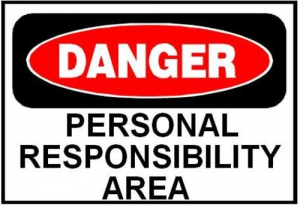 Picture, if you will, a school yard where a large circle of children has gathered around and is screaming and shouting. From an outside-looking-in perspective, there’s an intuitive assumption that, more than likely, at the center of that circle there will be at least two children caught up in shouting, flailing arms and attempting to wrestle each other to the ground. Inevitably, this fight will be broken up by a teacher or administrator and the children, now dirty and remorseful, will be taken to the office where they will face the consequences for their behavior.
Picture, if you will, a school yard where a large circle of children has gathered around and is screaming and shouting. From an outside-looking-in perspective, there’s an intuitive assumption that, more than likely, at the center of that circle there will be at least two children caught up in shouting, flailing arms and attempting to wrestle each other to the ground. Inevitably, this fight will be broken up by a teacher or administrator and the children, now dirty and remorseful, will be taken to the office where they will face the consequences for their behavior.
However, what if there was no holding these kids accountable for their behavior? What if, in fact, these kids got away with their actions, only to then duplicate them over and over again without ever changing or dealing with the retribution for incorrect actions? Right now this seems to be very much what we deal with in the AV industry on a regular basis when it comes to the amount of accountability to which individuals and companies are held.
It’s been said by many that have come before, sometimes in exceptionally sardonic ways, that the AV industry has many people with egos and a nasty habit of finger pointing when it comes to where to place the blame but, seemingly, no real consequences.
When an integrator doesn’t do a great job on a project and the end result is the customer is forced to call in a new company to “clean up” the project and make it whole, the original integrators might blame the short-comings on a consultant design. When a consultant puts out a specification that might, on paper, accomplish the goals of the client but is clearly another project that has been copied and pasted into this new design because “it worked the last time,” the ones expected to fill in the pieces are the integrator that are already at a shortfall as they underbid the competition for the work.
In both these cases the client will be the one to suffer. Due to these actions the retribution that we expect to see is that the consultant or integrator won’t get hired again based on a reputation for poor performance. Yet, that isn’t necessarily what we see happening. There is always another low bid, and often times there are other project opportunities that linger around the corner for the consultant as a client advocate.
Where is the accountability for the work being performed? InfoComm International has set up the APEx program for integration firms to demonstrate their qualifications quickly and easily – and with the requirement of customer surveys, this program should surely be applauded. But this program is reaching its 1 year anniversary and has a total of two (?!?!) companies worldwide that have attained the status. Are those the only companies in the world that are qualified to do the work we all do every day?
We have standards for how projects are supposed to be designed, installed and commissioned from various organizations, yet we all have experienced systems that don’t meet or even come close to living up to those standards. Why is it that we seem so eager to complain amongst ourselves about the poor quality of work coming out of a competitor’s shop or a consultant’s office, yet have no way of filing a grievance over the poor quality of work unless an identified individual responsible carries a CTS (-I/-D) credential? (Side note: there are currently zero outstanding sanctions published on InfoComm’s certification website.)
The AV industry collectively spends so many hours of conversation at conferences and conventions discussing whether or not we are going to be overrun by the IT industry that it would seem we often converse about nothing else. Yet, when it comes to the self-examination in our industry we are quick to judge everyone but have no action to take in order to raise the bar and force integrators and consultants to meet the standard of excellence that is preached by our leadership, displayed in our publications and expected from us by our clients.
Are we so passive as an industry to let this kind of behavior continue to happen and believe that it will change with time because the market will not continue to bear bad AV professionals? If that were the case, then why are we continually finding subpar work?
When manufacturers make mistakes there are consequences for them because people stop purchasing the product. But when your product is your services, quality will be guaranteed to vary based on the personnel working on each project, slimmer margins, and value engineered solutions.
We all start looking up at the possibilities of what could be and eventually reach a point of falling back into the world of what actually exists. However, we are not required to just accept that this is the way it is because this is the way it’s always been. We have the choice and the opportunity to actually do something about it. It may not be retribution against those that are lowering standards, and therefore, lowering those of the industry, but reporting these circumstances when able is where we must start.
If those that are committing the sins against AV are to continue on in the industry, then let’s all hold them accountable for their actions. Mistakes will happen and things will be occasionally missed. But a track record of expecting others to correct your work either during the project or once you’ve moved on to the next one should be acceptable to no one. Our industry is better than that and it deserves better than that.
Don’t just take notice of the bad work being done in the industry and accept it as normal. If you continue to stand on the sidelines and say nothing as a bad experience with AV can cause the overall reputation of AV professionals to diminish. You work in this industry – make sure you own your part of it as well.





Pingback: Subjective Standards | Sound ReasonSound Reason